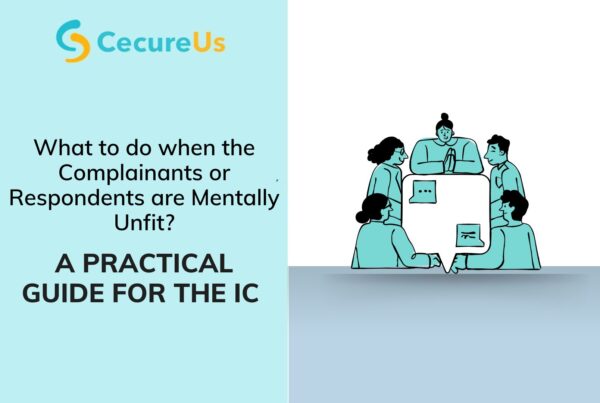As we all know, The PoSH law, or the Prevention Of Sexual Harassment(PoSH) Act, was passed in India in the year 2013 to protect women from sexual harassment in the workplace. The law is an absolute boon to Indian Women as it shatters several societal notions about workplace sexual harassment and allows women to voice against sexual crimes in the workplace. Although the law does not tolerate harassment, there are cases where malicious complaints have been filed against Managers, Peers, and colleagues for personal vengeance, which is a misuse of the law. The PoSH Law in India also has defined clauses to protect employees from malicious complaints.
Here is a case study of a malicious case, and it is a typical example of how the PoSH law in India works impartially for all employees so that while ensuring sexual harassment is avoided, the law also protects all employees from malicious complaints.
ANITA SURESH VS UNION OF INDIA & OTHERS
OVERVIEW OF THE CASE
In this case, a petitioner was reprimanded for using the PoSH law to file a malicious complaint. This case upheld the morals penned in section 14 of the PoSH Act. This also sent a clear message that no one can misuse charges of sexual harassment. The PoSH law in India does not act as a legal immunity but is a guardian of our rights, and when one uses it as a garb to abuse someone maliciously, it also punishes those wrongdoers.
SECTION 14 OF THE POSH ACT,2013
As discussed earlier, Section 14 is written in the act to create a difference between the correct and malicious and spiteful complainants. This act says that if the internal committee or the local committee concludes that the allegations filed against the respondent are false, it may be recommended to the employer or district officer to take action by the service rules applicable. This section of the PoSH law helps avoid abuse of the act and penalizes those who have malevolent intentions.
FACTS OF THE CASE
In this case, Anita Suresh, the petitioner, was an employee in the ESI Corporation in Manesar and was working there as an assistant director. On 8th July 2011, she filed a written complaint under the PoSH Act to the direction-general of ESI Corporation alleging that she faced sexual harassment from her colleague, Mr. Verma. She alleged that he misbehaved and encountered several sexual advances.
In her written complaint, she mentioned two incidents dated on 7th July 2011, in which she claimed that while sitting amongst her colleagues, Mr. Verma passed some remarks, which for the reasons of maintaining decorum she cannot write a filthy language on paper, and also commented something which indicated sexual advances. Also, in the presence of staff and other members, he had asked her to come to the male’s toilet to check the shortcomings.
This led to the formation of the PoSH internal complaint committee. Respondent appeared before the forum, which enquired about the case, and he denied all those charges of the case. He also added that the complaint was malicious. It was made against him because the petitioner held a grudge against him as he disposed of official work in her absence.
Later the committee examined the eight witnesses, the respondent and the petitioner. On 20th January 2012, the committee held that the exact context of the dialogue between petitioner and respondent could not be established, and offering the benefit of the doubt to Mr. Verma, the complaint was considered malicious, and the committee suggested that both the parties may be relocated from their present positions.
But the petitioner called the committee’s report erroneous and believed that relocating the respondent wasn’t sufficient punishment. She also claimed that on 4th November 2011, the respondent threatened and coerced her to withdraw her grievances.
Video order from the court dated 28th March 2019 directed ESI Corporation to produce all the documents, which shall be scrutinized by the court.
During the proceedings, the court observed that the petitioner failed to give names of those present during the incident mentioned in her complaint. All those employees and staff were examined who were present on the day when that alleged incident took place, and none of them supported those allegations.
Due to insufficient evidence, it was held that the writ petition didn’t have any merit. Therefore it was dismissed as a malicious case, and the petitioner was asked to pay an amount of Rs. 50,000/- to the Delhi Advocates Welfare Trust within 4 weeks.
CONCLUSION
This case has set an example that the laws encoded in the PoSH act are not meant to exploit the innocent but are written to protect the rights of employees. Though this act was established to protect the rights of those who faced sexual harassment, in recent years, we have seen some incidents where some employees have tried to misuse the law for their selfish motives. Establishing fines on false cases like these would prevent the tarnishing of an honourable citizen’s image and save valuable time in court.
ABOUT THE AUTHOR
Hemansh Tandon is a fourth-year law student from Indraprastha University. He is an avid reader and has a keen interest in writing prose and verses.
For more information on Prevention of Sexual Harassment(POSH), EAP (Employee Assistance Programs), D&I (Diversity and Inclusion) offerings by CecureUs , please contact connect@cecureus.com or call us at +91-7200500221




